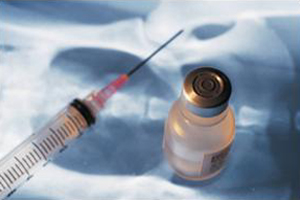Oyster Extract "News" for your good health!

Current News which
discusses available
Blood and Immune products.
CURRENT NEWS-August 6, 2005
Research
Ignorance Thwarts Hepatitis C Fight
August 6, 2005 (Christchurch, New Zealand)
'There's nothing that hits you like a ton of bricks. You put a lot of it -- tiredness, intolerance to alcohol -- down to the effects of aging. I thought maybe I just [needed my cholesterol checked].' Carriers of hepatitis C are going undiagnosed and missing new treatments because of ignorance and stigma, says a medical researcher. Dr. Ian Sheerin, of the Christchurch School of Medicine and Health Sciences, said general practitioners did not actively offer testing, and some patients preferred not to know. "There seems to be an old view that there's nothing you can do about it, but there are some very good treatments now," he said.
Last year, Pharmac began funding a new combination therapy medication for hepatitis C, called pegylated interferon. Treatment had a success rate as high as 80 percent for some types of hepatitis C infection.
Contact with Infected Blood
As many as 30,000 New Zealanders are thought to have the disease, spread by contact with infected blood.
It is known as the "silent epidemic" because some never develop symptoms and it is thought fewer than 30 percent have been diagnosed.
Sheerin said there was a need for specialized GP clinics to test people and provide follow-up education, support and ongoing laboratory testing for liver function. He cited a successful example in Wellington that ran in conjunction with the needle-exchange program.
Because up to 80 percent of infections were associated with injecting-drug use, many affected people felt marginalized from society and did not like to go to a regular GP, he said.
Hepatitis Foundation chief executive John Hornell said all GPs should offer testing, so infected people could be monitored and treated.
Some people would have forgotten about illicit drug use in their past, he said.
Treatment Cleared Virus
"A lot of professional people did it in the 1970s when heroin came in, and I know of people who've got hep C who only injected once."
Bill Jang, 50, had hepatitis C for 25 years before he was diagnosed. His symptoms were "subtle and non-specific."
"There's nothing that hits you like a ton of bricks. You put a lot of it -- tiredness, intolerance to alcohol -- down to the effects of aging. I thought maybe I just [needed my cholesterol checked]."
Jang said he had injected drugs as a teenager. Although clean now, his condition was worsened by heavy drinking in his 20s and 30s.
After two courses of treatment in his 40s, he was clear of the virus.
Can Go Undiagnosed for Decades
Jang, who is manager of the Hepatitis C Resource Center in central Christchurch, said people needed to realize the infection was more of a problem than many thought.
"A lot of people my age have almost forgotten they put themselves at risk in the '70s and '80s," he said.
"We also need to upskill doctors a lot better so they can learn to monitor it."
Jang said the resource center needed more resources to employ paid educators.
About 4,000 people are affected by hepatitis C in Christchurch. The city has the most injecting-drug users per capita in the country.
http://health.dailynewscentral.com/content/view/1449/
